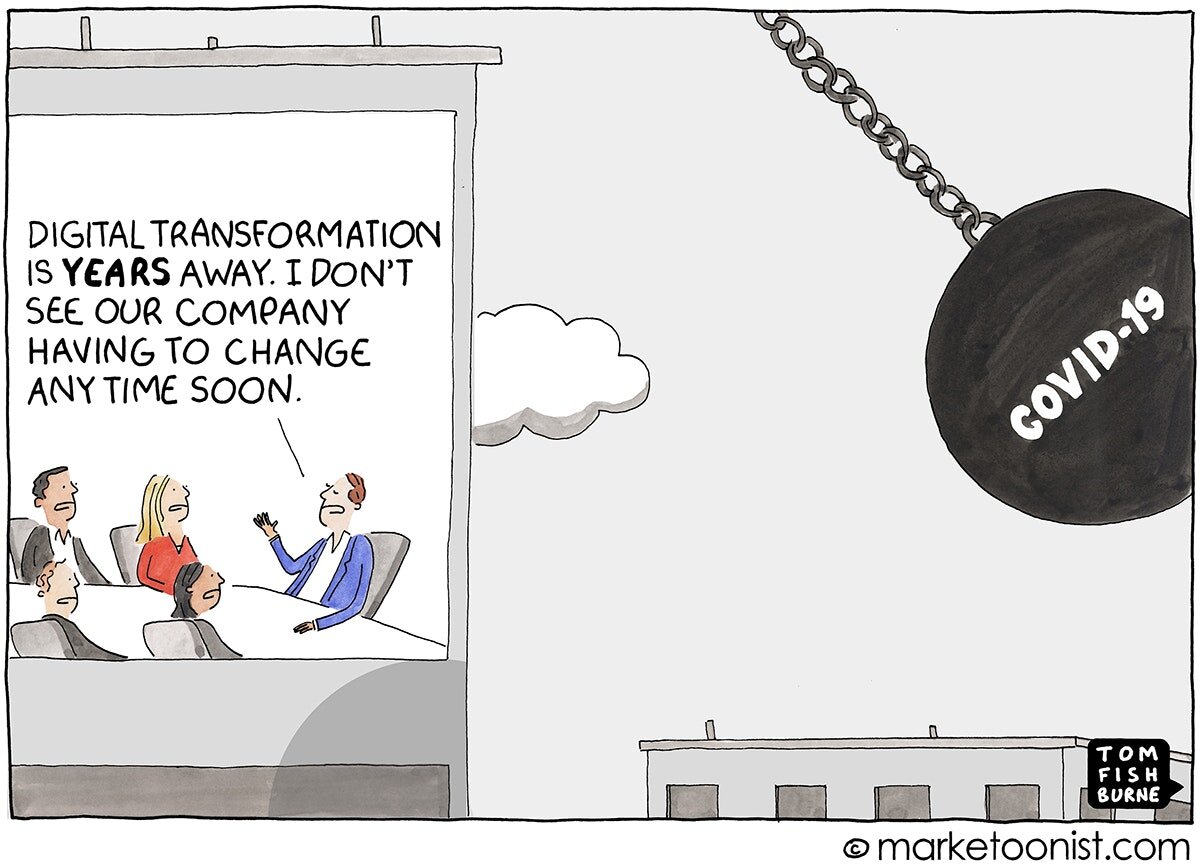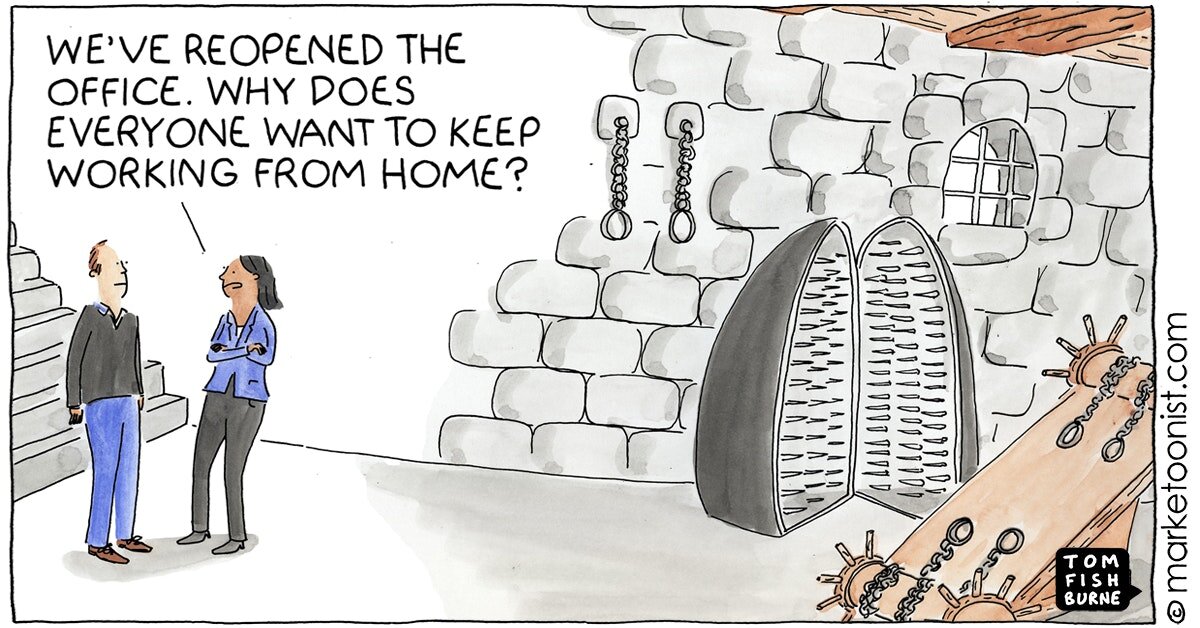On Identity
Digital Art by Marcel Caram
How do you take a measure of a person? Is it possible to understand a person?
Here are some lines from literature that say it is difficult and may be impossible
“You get them wrong before you meet them, while you’re anticipating meeting them; you get them wrong while you’re with them; and then you go home to tell somebody else about the meeting and you get them all wrong again.
The fact remains that getting people right is not what living is all about anyway. It’s getting them wrong that is living, getting them wrong and wrong and wrong and then, on careful reconsideration, getting them wrong again. That’s how we know we’re alive: we’re wrong. Maybe the best thing would be to forget being right or wrong about people and just go along for the ride. But if you can do that — well, lucky you.”
From American Pastoral by Philip Roth
Digital Art by Marcel Caram
And let us say we get a person right which person of the many identities and moods of that person did we just get right?
“We cannot live with only one identity. We all have many identities, they are liquid”
Olga Tokarczuk. Polish Author and Nobel Prize Winner for Literature.
Digital Art by Marcel Caram
And as many writers state it is sometimes hard enough to know ourselves.
“Sometimes you don’t know who you are till you put on a mask”
Alexander Chee in the Short Story “Girl” written in 2015
Digital Art by Marcel Caram
And do any of us want to be profiled and boxed and put into clusters? None of us wants to hear that somebody has our “number”. The poet TS Eliot best verbalizes this in a stanza from “The Love Song of Alfred J Prufrock”
And I have known the eyes already, known them all— The eyes that fix you in a formulated phrase,
And when I am formulated, sprawling on a pin,
When I am pinned and wriggling on the wall,
Then how should I begin to spit out all the butt-ends of my days and ways?
And how should I presume?
Digital Art by Marcel Caram
Emotional Intelligence can help in understand our selves and others. It can bring meaning to an age of math and reduce the “algos” which in Latin means “pain” in the algorithmically tuned streams that colonize our minds.
In the book “Untangled: Guiding Teenage Girls through Seven transitions into Adulthood” is one of the best definitions of Emotional Intelligence I have come across:
“Seeing yourself from the outside and seeing others from the inside”
Digital Art by Marcel Caram
“We don’t see things as they are. We see them as we are” anonymous
In many ways what makes us “us”, in addition to our genetics and experiences, is what we put into our minds which include the books, movies, tv shows, music, social media streams, magazines and much more that we ingest as well as the people we meet and places we visit.
This means we are constantly changing and if it is difficult to understand ourselves, true empathy is understanding that we may never understand anyone else.
Digital Art by Marcel Caram
Privacy and Identity
In 2014 at a TED Global Conference in Rio de Janeiro, Brazil, the journalist Glenn Greenwald gave one of the finest talks on why privacy is important.
It is a must watch.
Privacy is important because we are not who we are when somebody is watching…
When someone negatively impacts our privacy, they might prevent us from being ourselves.
In a quest to identify and put us in a box they may impact the very identity they are trying to understand.
Digital Art by Marcel Caram
The private, the personal, data and true understanding.
David Orr is a poetry critic for the New York Times who a few years ago wrote a book called “Beautiful and Pointless”. In the opening chapter titled “the personal” he seeks to show how “private” and “personal” are two very different things.
David provides a list of sentences:
Bob Smith was born on November 9, 1971.
Bob Smith’s favorite password is “nutmeg456”
Bob Smith’s Social Security number is 987-65-4320
Bob Smith has a foot fetish.
As a child, Bob Smith had an imaginary friend named Mr. Pigwort.
Whenever Bob Smith hears a high wind, it makes him think of his wife, who died ten years earlier, and he hears her voice faintly calling, as if from a great distance.
He notes that the first three sentences contain deeply private information, but they don’t seem personal like the last three.
Mr. Orr then states:
“The point here is that our conception of “the personal” has to do more than the data of our lives, no matter how sensitive. It has to do with how we see ourselves, how we see others, how we imagine others see us, how they actually see us, and the potential embarrassment, joy, and shame that occur at the intersection of these different perspectives”
In an age obsessed with data we often believe that data can explain, and data can convince.
To a point it might, but we should never forget that meaning lies within us and combines emotion and rational thinking.
We often barely know ourselves and can be two different people in two different moods.
Because we choose with our hearts and use numbers to justify what we just did.
And we need space and privacy to be who we are.
Should I Stay? Should I Go?
Houston.
And New York, London, Amsterdam, Mumbai, San Francisco, Chicago, Paris…
We have a problem.
Talent turnover.
Like none of us have ever seen before.
Regardless of the market, the industry, or the level of seniority.
Over the past two weeks having flown to five cities in the United States on both coasts, the South and the Midwest and virtually visiting seven countries in Europe, South America, and Asia to advise senior management or speak at team gatherings across a spectrum of industries from finance to consumer-packaged goods to technology, it is clear that the key challenge is no longer tech, data, capital, or business model.
It is people.
Turn over rates of 30%, 40% and 50%.
Hundreds and thousands of open jobs in each company.
The inability to fill roles with significant increases in compensation.
Whether it be two years of re-thinking one’s life post Covid, or the self-immolation of a management class that failed to understand that power has moved to talent and by not talking straight to them is losing them, or the freedom enabled by those lucky to have benefited from the significant rise in capital assets, everyone from someone with two years of experience to extremely wealthy entrepreneurs and leaders are asking…
Should I stay?
Or
Should I go?
Three Filters
Every individual will need to make their own call.
As someone who had stayed put for 38 years at one place my inherent bias is to stay since 1) the grass may be greener on the other side because it is fertilized by bullshit, 2) because with time one builds trust in a firm and trust is speed and is so critical today and 3) there is nothing as powerful as compounding returns whose benefits are easier to gain by staying and addressing issues at one place versus moving between places.
So, my inclination is wherever you are please first look to stay.
Roots matter.
And often you can find wings at the place you have roots.
Here are three questions you may want to ask yourself to help you decide whether you wish to stay or go.
Freedom: Can you be free to become who you are? Can you have autonomy in your work?
Story: If you shift how does it fit in the story arc of your career? How does it reflect in your legacy if you are senior?
Growth: Can you find ways to grow where you are, or do you have to leave?
You will notice that none of these questions use filters of money, power, fame, or many of the things we worry about.
Not because they do not matter.
But these are not core to how you determine how you spend your one precious life.
Look carefully at many of those who have money, fame and power and you will find amazingly talented people who scripted their story, continuously grew, and struck out freely in new frontiers.
They focus on the ball and not the scoreboard.
Freedom
One way to define success is to have the freedom to spend time in the way that gives one joy.
Every person has a combination of different elements that bring them joy from adventure to learning to practicing craft to helping others to building wealth to family to passions and hobbies.
This joy is often accompanied by a sense of flow when deeply immersed in doing, a feeling of grace and serenity when feeling as one with all around and often excitement and ecstasy of pleasurable pursuits.
When you do your job does it give you a sense of flow, a sense of being or a sense of excitement at least half the time (hey if your job sucks for a third or less you have a great job …but if there is very little flow, grace or serenity please look to change the situation since no job is worth your life…)
If you find limited freedom in your job does not mean you quit.
Rather go to your manager and insist on crafting a new role that ensures you get the freedom you deserve.
But please do realize you have a job, and you are not being treated at a spa and there is a lot of difficult stuff one must deal with.
Most managers and leaders are terrific once you speak with them as humans.
See if you can get more autonomy for yourself and craft a role more aligned to who you are while staying where you are.
If not leave.
Story.
Joan Didion wrote “we tell ourselves stories in order to live”.
We build identity via the narrative of our lives.
As you make you decisions look back from the end to the beginning and ask about your legacy.
In the short term it is to explain why you switched from one assignment to another that sounds strategic and smart.
In the longer run it is something more important.
Your story.
Rupert Murdoch, Bill Gates and many others possibly would give up a lot of their fame and fortune if they could re-write their narrative as they enter their 70th and 90th year.
Only if we could learn what is important before it is too late.
What is the story you want your friends, colleagues, and children to share about you?
It will be the story and not the power, fame, money, or the Instagram post that will endure.
What you do is who you are.
Make sure that where you work, what you work at and your career legacy can tell a story that is how you took the road less traveled by, how you told truth to power, how you sang your song and became who you were and where you were sensitive to other people’s thinking but did not live your life to optimize your presence in their minds.
It is your life.
It is your story.
Do not let anybody but you define it.
T.E. Lawrence (Lawrence of Arabia) reminded us “nothing is written”
Till you write it.
Write your life. Write your career.
Be you. (Since as they say everyone else is taken…)
So, see if you can craft the next steps inside your company (every smart firm is far more open to what their talent wants than ever so do give your firm a chance to help you craft your story…but if they do not it is your story and do not ever let anybody, but you write it…)
Growth.
We all want to grow.
Grow our bank accounts, portfolios, the square feet we live in or own, our power and our reputations.
But in the end, we want to grow ourselves as people.
Our skills. We must be able to build and merchandise the skills for the future.
Our humanness.
Our potential.
In the end the day we stop growing is when we start dying.
How can we all grow? Learn new skills? Expand our horizons?
Make no mistake most of us are going to have 50-year careers in a world where companies remain in the S&P 500 for less than 15 years, and the half-life of our skills will last less than a decade.
Can you grow your skills?
Can you grow your reputation?
In the end you are responsible for your future. Not your company. Not your HR or Talent Group. But if you can please do stay. But stay because you can become free to be who you are, because you can tell a story and because you can grow.
Too many people end up lost following the wrong star.
It is not fame, money, power or leaving.
It is freedom, story, growth and insisting on these from the places you want to stay at.
If they say no.
Then and only then.
Go…
And if you are management struggling to retain talent maybe it’s time to talk freedom, story and growth…
How to Thrive in the Modern Workspace
Cartoon by Tom Fishburne
Work is central to the Human Experience.
It provides income, identity, community and meaning.
The trauma of a job loss is second only that to the death of a loved one.
Three inter-acting forces are sculpting a new terrain for the future of work.
1. Globalization which while creating wealth overall can be devastating for communities and industries in many regions. Both globalization itself and a backlash to it will shape the contours of opportunities (or their loss) for everyone
2. The three A’s of technology (automation, algorithms, artificial intelligence) which accelerate middle-class income job loss at speeds far greater than jobs they create. Another major factor will be how mobile devices and advanced measurement will change how work is compartmentalized and distributed.
3. Covid-shock driven behavioral and structural change: After nearly two years of dispersed work forces, plummeting travel replaced by Zoom/Teams, the expectations, and behaviors of bosses, employees, and clients are going to be dramatically different. Like a champagne cork that once opened never fits back so too there is no going back to December 2019 but imagining forward.
The nature of work, how it is done and where it is done will be dramatically different in the coming years.
Cartoon by Tom Fishburne
Three shifts underway.
1. The “Office” as we knew it is over: Let us not kid ourselves or find succor in the belief that “hybrid” work will bring back the office.
Yes, if you are in dentistry, work on an assembly line or your work requires close physical proximity with your customer. Otherwise, we are likely to spend less than 20 percent of our time in the office as we knew it.
In the “Jigsaw or Return” the concept of the “unbundled ”workplace was discussed where there are four places we work which include home (increasingly distant from our old offices and significantly upgraded for working), events/conferences, (where we go to network, learn and build relationships), third places (WeWork, Starbucks where we get out of our homes and collaborate with our colleagues) and the Museum (the old office filled with artifacts and history where senior management or curators of “culture” pass down learning and training and Clients are pitched.)
Let’s be real: how much time will we spend in Museums?
Despite what you may be hearing most smart companies are recognizing that to compete for top talent, retain flexibility and agility, and control costs they must significantly reduce their physical footprint. Even the big banks and old school investment firms that insisted everybody return all the time are working behind the scenes to align with the new reality.
2. We are all going to be gig workers: The reason for this is three-fold:
Making costs variable: First, companies in a world of change are beginning to see that making costs variable is a key to success. The ability to shed costs with changing demand is what makes an Uber (which owns no cars, and its drivers are not employees) does better than a Hertz (which owns the cars and has employees on its payroll).
The re-aggregated organization: Increasingly in a world of change and zero-based budgeting and with new companies starting with a fresh sheet of paper the modern organization is re-aggregating skills at scale rather than hiring generalists and training them to be specialists. And based on demand it adds and subtracts what it needs.
One driving force of this are platforms. Not just the platforms that we are familiar with of Microsoft, Google and Amazon but also internal corporate platforms that allow a company to give employees everywhere training, connections and also importantly opportunities they may not have had in their market. Companies now can re-aggregate customized solutions by choosing individuals from everywhere.
The diminishing half-life of skills: A company today remains in the S&P 500 for less than 14 years while many of us will work for 40 years. Someone perusing job descriptions today who was asleep for the past fifteen years would probably not understand many of the words in the job spec.
3. The future is fusion: It is not man/woman versus Machine but man/woman working with machines.
Today we may be people using machines. Tomorrow we will be helpers attached to machines to do what we can do more cost effectively like pick produce and enter a building to drop things off or add a bit of empathy or experience so we can connect with other analog, carbon-based feeling appendages of digital, silicon-based, computing machines. The machines will advance at the rate of improvement in chips and machine learning which means getting twice as good every six months to eighteen months while we humans improve far slower.
Cartoon by Tom Fishburne
How to thrive in the modern workspace.
While the Modern Workspace might sound dystopian it does not have to be so.
Having the option to work from anywhere on opportunities we did not have access to, with repetitive work delegated to machines is not an unpleasant scenario!
But it will require us to change, re-tool and grow by honing four skills :
1. Continuous learning: The day you stop learning and upgrading your skills is the day your future in the modern workspace begins to decay.
In today’s world where many smart companies are providing access to significant learning resources online and where between Coursera, You-Tube, and a multitude of free or low-cost training and credential program are available, there is no excuse not to learn.
Allocate an hour a day to learning regardless of your level in the organization. In many ways middle and senior management need to learn the most since our skills are probably the most rusty and irrelevant!
2. Upgrading our emotional operating system: While understanding data and technology and its implications will be necessary to succeed it will not be sufficient. If we are to work in a connected workplace where we add value to machines and quickly integrate with other people, we will need to ensure that our emotional operating systems are continuously refined since while we will be working with silicon based, data driven, computing machines we will be adding value and connecting with others as carbon based, story driven, feeling humans.
We will need to build our skills to empathize, our ability to listen, our ability to inspire with creativity, design and storytelling, and to earn and gain trust by doing what we say and building a long-term reputation.
The future of human careers in a distributed and technology driven world will be built with emotional TILE: Trust, Inspiration, Listening and Empathy.
3. Think like a “Company of One”: Even if you are working in a company of tens of thousands in the modern workplace your company will re-aggregate individual talents into teams that work on a client or project. In many cases you may find yourself working with different parts of your company or different regions who may not know about your skills, or you may find yourself working with several companies. You are now a company of one who needs to ensure that people within the company are aware of your skills, and you build skills in areas there is a need.
In addition to ensuring that databases and information about you on your company’s system are up to date it is also critical that you build out an external online presence. Your resume is not what is on your hard drive or LinkedIn it is a sum of your web presence, particularly the first page that people see on Google when they search for you. Go look at it today. Go look at news. Go look at pictures. Go look at videos. This is you as the future becomes more distributed and digital.
You would be surprised at how many Clients now check out the people that companies assign to them to see if they are any good.
To help create a better presence think of being active on Twitter and LinkedIn, develop a website (using Square Space or some other service), think of writing a blog on some passion or hobby or even start a newsletter.
4. Learn to “lead” and “do” since “managing” while important will increasingly play a smaller role.
When talent can take any assignment. When there is nobody to keep waiting outside your office since there is no office and you are a square in Zoom call whose big office building that was supposed to impress is in the Cloud, what is a manager to do? When “checking “work and on people is truly defined as what it is which is “increased friction” and “un-necessary control “it will be those who can lead (inspiring, teaching, listening, showing the way forward) and those who can do that will be followed.
People will follow people and not titles.
The modern workspace is real.
The future will not adapt to us.
We need to adapt if we are to have a thriving future.
Employee Joy!
The most important component of long-term sustainable advantage for any firm –regardless of its size--is its ability to attract, retain, inspire, and grow talent.
Talent is the sustainable advantage.
It is talent and only talent that creates and/or preserves every other form of sustainable advantage whether it be innovation, new ideas or superior service.
If a Brand is experience it is employees who ideate, create, design, and deliver the experience.
If cost management is a key goal, then focusing on a fewer better paid and trained employees working at their full potential with minimum external monitoring, but maximum internal motivation is likely to yield lower costs than hiring the cheapest labor.
Employees as advocates.
Today potential employees and customers have access online to a spectrum of resources to evaluate culture and advocacy of existing employees of a firm.
Employee advocates attract other employees and are the best salespeople to convince potential customers.
So maybe instead of focusing on customers or technology or shareholders we should focus on the key to everything.
Employee Joy.
Employee Joy.
Rather than Net Promoter Scores, ESG goals, ROI metrics we should better understand the people who drive the results we are monitoring.
Let us focus on the players rather than the equipment, the field, or the scoreboard.
There are several ways to evaluate employee joy from observed metrics such as average tenure, turn over, percent of offers accepted, the premium one has to offer to hire a person, to exit interviews, custom surveys, focus groups, town halls, and tracking comments on third party sites and more.
Regardless of how and what one measures what is key is that every manager up to the CEO recognize and be motivated so that a huge portion of their success and compensation is based on how they lead, nurture, and grow people.
Many studies of the best CEO’s show they tend to focus on three key areas which are strategy, capital allocation and people rather than operations, revenue generation, investor relations or customer management. And those who have been superb at strategy and capital allocation like a Jeff Bezos but did not pay enough attention to people have recognized that it is now key.
Why is the importance of employee joy growing?
Today regardless of the type of job one is trying to fill whether it be a cook for a restaurant or an engineer firms have open jobs they struggle to fill even with significant compensation increases.
Some of this may be attributed to government benefits that enable one to not work at least temporarily.
But the issue is far deeper as we approach the two-year anniversary of the Covid-19 Virus which has through a combination of separating an employee from their place of work, concentrating one’s mind on the fragility of life and breaking rote habits has made many people re-think their lives and careers.
According to a recent Microsoft Survey 41% of employees globally are thinking of handing in their notice with that number soaring to 54% among generation Z ( 18 to 25 year olds).
And by companies insisting on a return to office when neither Covid is gone or talent are hankering for old ways gives further pause to the very people they are trying to cajole, threaten or implore back to containers and ways of the past.
What do employees want? How to ensure joy?
Regardless of industry, country or demographic group research conducted for Restoring the Soul of Business: Staying Human in the Age of Data identified six components of joy:
Money: People expect to be paid fairly.
Fame (Recognition): We all want to be recognized and feted for what we do even if it is to be acknowledged for a well completed project
Power (Autonomy): For some people this is authority but increasingly it is autonomy to be able to get a job done in ways and places that fit versus being monitored and micro-managed.
Connectedness (to bosses/fellow workers/customers): While work is not family it is a part of one’s identity, a portion of one’s community and feeling connected in positive ways to a boss, fellow workers and clients/customers who are respectful versus treating one as servile.
Purpose (Values and Culture of company): Increasingly purpose drives a lot of career decisions especially among Millennials and Generation Z. Purpose is about a set of behaviors and not just words and Culture is what happens when nobody is looking rather than posters and chants!
Growth (including skills): Every few years the landscape of every industry is changing and in addition to career growth many individuals are looking to build skills that will keep them relevant and sought after so they do not find themselves unemployable. Training programs, opportunities to try new assignments or work in different markets are all critical to growth.
Companies that win in the long run tend to deliver on all six but are particularly good at connectedness, purpose, and growth since this retains and grows talent for the long run.
As technology expands and gets more powerful and cheaper more and more work done by carbon based analog feeling things (humans) will be replaced by silicon based digital computing objects (computers) and the companies that thrive will combine the best of technology with the best of talent working with joy.
Because low-cost talent with no joy is an unfeeling commodity that can be replaced by a machine or can be underbid by someone with cheaper FTE (a full-time equivalent which itself telegraphs we are all replaceable widgets!)
Employee joy is all!
Miniature Dioramas by Tatsuya Tanaka from the Miniature Calendar Series. (Thank you to David Thurm former Chief Operating Officer of the Art Institute of Chicago and a reader of this thought letter for pointing me to them as something to feature. Take a look, they are amazing.)
What If? Imagine Then …
A series of thought experiments that one may apply to a range of topics.
A few examples.
Return to the office.
What if there is a company operating in 2021 where keys to remaining competitive are attracting and retaining a diverse workforce of highly skilled talent, ensuring flexibility/agility, and competing with several new start-ups.
Imagine then if one of that firm’s priorities is to get employees back to the office since it is” critical “to build culture, training, and relationships”. After all ideas cannot be generated outside of the office (though that was the reason for off-sites), relationships cannot be built online or at events or locations outside an office such as restaurants and bars or conferences (which is where people went to collaborate and network) and one cannot learn or be educated anywhere but the office despite most significant learning taking place outside it. Finally, culture can only be built in the office which is another name for a museum of old artifacts infused with essential history and senior folks working in the guild of “tradition” and “apprenticeship” of some nostalgic age.
The Importance of Speed.
What if speed is indeed a competitive weapon and moving fast provides one an edge in hyper fluctuating and reacting markets.
Imagine then if in this need for espresso action every decision is lovingly percolated like at high tea or Japanese tea ceremony. Months pass between sending a Request for Proposal (RFP), receiving responses and an actual decision being made. Where more time is spent evaluating a decision than if the decision had been made and market reaction gauged, and a program adapted with real world data to determine its viability.
The Cost of Differentiated Inputs.
What if there is abundant evidence that the difference in productivity and impact between an excellent talent and an average talent can be 10x in knowledge industries and that most companies understanding this justify significant multiples in compensation for their top talent and management versus that of the average worker.
Imagine then if the focus of the organization is to zero base budget costs and find the lowest priced suppliers to whom they can pay the least in the slowest way possible way. This approach may impact who is placed on the business, the attention it gets and the quality of suppliers who might work with the firm. But, if one believes an hour of input is an hour of input one should also buy meat in volume since after all there is no difference in what part of the cow is purchased since the hoof should have the same quality as Kobe beef !
The Importance of Time.
What if one has 75 years of a physically healthy life. Someone in their mid-forties therefore has less than 10,000 days left and someone turning 60 is dwindling down to less than 5000. What if time is the only asset and as Franz Kafka said the meaning of life is that it ends.
Imagine then if time is taken for granted. By you or by others. When people ask for time for no or little compensation (earning, learning or joy of doing). When one delays, procrastinates, dithers, and lingers.
The Definition of Success.
What if a definition of success is to have the freedom to spend time in the way that gives one joy? This joy is often accompanied by a sense of flow when deeply immersed in doing, a feeling of grace and serenity when feeling as one with all around and often excitement and ecstasy of pleasurable pursuits.
Imagine then living in other people’s minds trying to ensure they think highly of us. Pursuing the plumbing and process of life and forgetting the poetry and passion. Watching the scoreboard and losing track of the ball.






























